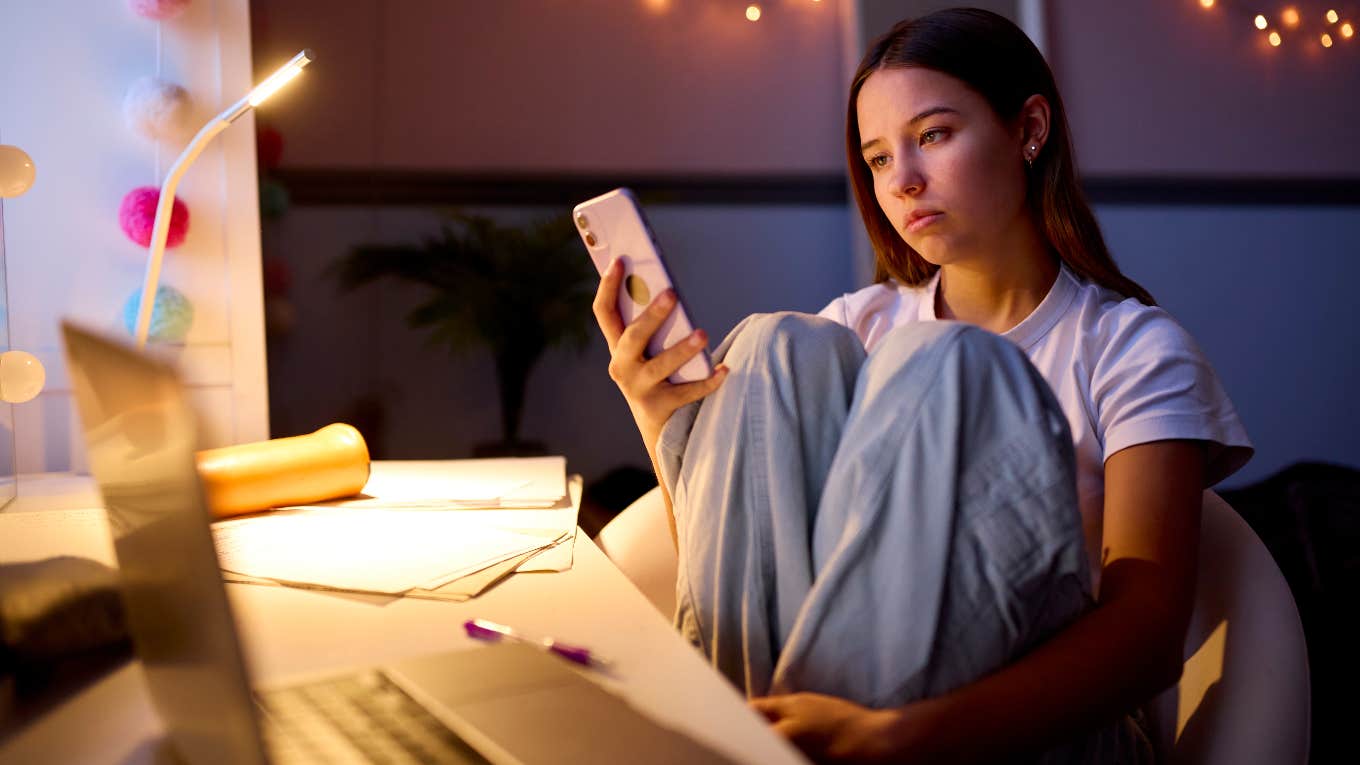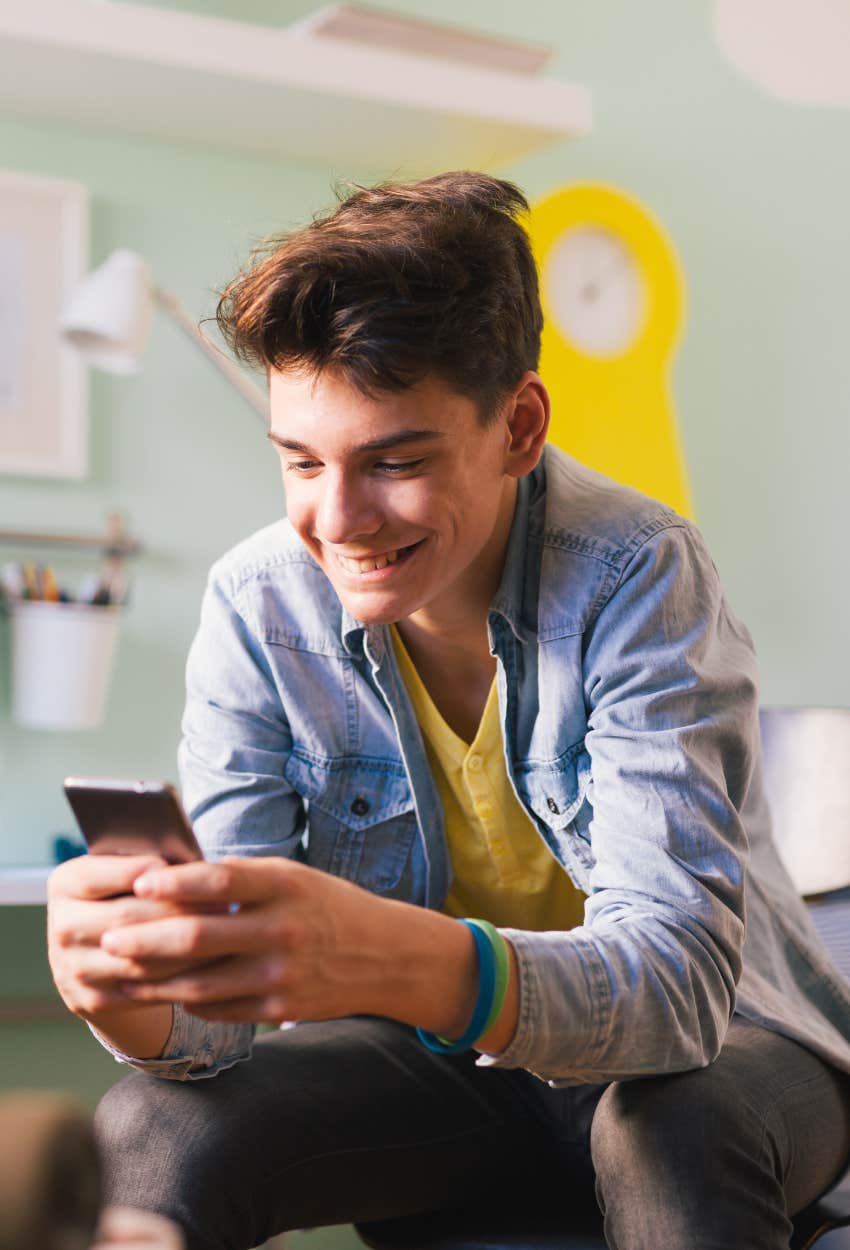Mom Says Australia’s Decision To Ban Social Media For Kids Under 16 Is ‘Garbage’
Is this law actually protecting kids from social media's harms, or just kicking the can down the road?
 Monkey Business Images | Shutterstock
Monkey Business Images | Shutterstock At this point, the negative impacts of social media on kids, teens, and young adults (to say nothing of its impacts on society at large) are pretty well established, and some experts on the matter have urged parents to ban social media use for kids under 16.
Australia has taken things one step further, actually legislating the matter. However, many parents are unhappy with the law and say it doesn't address the actual problems social media causes.
Many parents are critical of Australia's social media ban for under-16s.
In late November 2024, Australia implemented a ban on social media for kids under 16, one of the first laws of its kind. The ban does not go into effect until later this year, but it has already caused quite a stir.
Many of course support the ban, especially given the wealth of research that has shown that social media use is not only correlated with everything from depression and anxiety to learning difficulties — not to mention bullying and political indoctrination — but also because it has repeatedly been found to be addictive. Social media apps are, in fact, designed to be — they are literally modeled after slot machines.
Yet many parents are unconvinced by the legislation. Questions linger about how it will be enforced, while others feel that the law is little more than political theater.
One Australian mom called the law is 'garbage', claiming it does not address the actual problems.
Lauren Dubois, an Australian journalist and mom who creates content about parenting, is among those who find the Australian law to be sorely lacking.
"On the surface, this looks like the government cares about our children," she said in a TikTok video about the matter. "But… it doesn't actually fix anything."
Instead, she said, it simply delays those issues to the age of 16.
"It just kicks the can down the road," she said. "It's like saying to kids, 'Look, this water is really dangerous. You can't swim in it. There are sharks there.' And instead of removing the sharks and teaching the kids to swim, we'll just wait until you're 16 and push you in the deep end.'"
A better law, she went on to say, would actually hold social media platforms accountable for the content and accounts they host, among other things.
"We could have fixed the algorithm. We could have conducted education for children in digital literacy, critical thinking, understanding, AI, harm recognition," she said.
Instead, the bill ignores all that in favor of letting the platforms police themselves, and with no clearly defined rules for doing so, you can probably guess what the platforms will do instead. The law's fines, which cap out at A$33 million or about $50 million — are a drop in the bucket for these multibillion-dollar companies.
Dubois pointed out that the law also gives platforms wide latitude in the data they are allowed to collect from minors once they do join, including biometrics.
"They're telling you they care about your children," she said of Australian legislators, "and yet they have done nothing to limit our children's access to graphic [adult content] online… they refuse to ban gambling ads from our children's eyes."
One expert said the ban also deprives parents of crucial opportunities to prepare kids for social media.
Joanna Schroeder is a parenting expert and co-author of the forthcoming parenting book "Talk To Your Boys," which focuses heavily on social media, especially the role it plays in exposing adolescent boys to extremist ideologies. (Schroeder is also an editor here at YourTango.)
In a stitch of Dubois' TikTok, Schroeder explained that the Australian ban also prevents parents from adequately preparing their kids for social media's dangers while they're still developmentally receptive to their parents' perspectives.
"Remember when you were like 12, 13, 14? The things that your parents said had a lot of influence on you," Schroeder said in her response video. "[But] as we get older it is developmentally normal around age sixteen to stop listening to our parents."
"We need to understand that there is this prime time between, say, 10 and 14 when we can really draw our adolescents close, connect with them, let them see that we have their best interest at heart, that we're not just trying to control them," Schroeder continued.
She noted that several experts with whom she consulted for her book advise parents "to start your children on social media in middle school [while] heavily supervised," an approach she took with her own kids. She explained that she started by opening them accounts on her phone only with full transparency and access.
It allowed her to intervene when, for instance, some "serious bullying" erupted in her son's DMs, and enabled her to use that as a launching pad to open up a discussion with him about empathy and seeing others' perspectives. By the time they were 16, the preparation she'd been able to do left her feeling comfortable that they could handle having their own accounts.
 Dejan Dundjerski | Shutterstock
Dejan Dundjerski | Shutterstock
Having to start all that training at the age of 16, when many teens are dealing with sensitive matters and parents' input can feel like an intrusion, has the potential to erode parent-child trust right at the point they're being thrown into the "shark-infested waters" Dubois spoke of. "You want to influence your kids when influence brings them closer," she said, rather than later when it tends to push them away.
It's a tough call, but in the end, Dubois and Schroeder make compelling points: Social media isn't going anywhere, and its dangerous influences don't just evaporate on a kid's sweet 16. There's got to be a better way.
John Sundholm is a writer, editor, and video personality with 20 years of experience in media and entertainment. He covers culture, mental health, and human interest topics.

